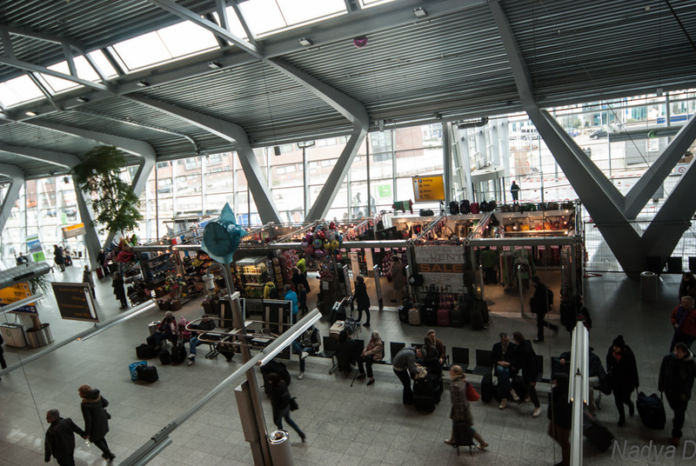We all grow up with a dream, the hope of having a happy life and ambitions of personal achievement. Whether we admit it or not we all have a goal and we all have a reason for the decisions we take in life, and we all, as children, at one point went to sleep dreaming of how our perfect world could be.
But many amongst us have woken up in the morning with only one thought on their minds: I want to move to another country. When and how do all the people that move so far from their homes decide that THIS moment is the right one? Sociologists speak of this as international migration, and it is so hard to answer this question, that even finding a common definition of the term is challenging to say the least. Why? Because the reasons are so diverse that one theory cannot cover all the motives one has for moving to another country. You could say it is absurd, but think about it. Moving to another country or even continent might happen because you are dissatisfied with your current job or with the political situation in your home country, with the low income, with the limited possibilities the market offers, with the poor employment conditions or even with your family or your personal life. Maybe you found love overseas and you want to pursue this and explore new challenges in order to change your life.[nbsp] But these could be thought of as just the general motives that lead to these types of decisions, while the real motivation for making the change is the sum of all desires, wishes, frustrations and expectations that one has during every second of one’s life. I remember the first time I was sure that I would not live in my country all my life. When I was in my first year of University, I went to the USA for 4 months with a Work and Travel programme. The moment I set foot on Madison Avenue, at night, I realized I was so small and the world was so big and shiny, that I felt an urge to discover it all. I had this feeling for a long time afterwards, and it is hard to stay small and think small when you are sure that there is so much more on offer to settle for less and remain content. From that moment onwards all my decisions were to some extent influenced by my desire to study, live and work abroad.
The essence here is that one does not take the decision to move to another country based on one or two current needs, but based on the summation of one’s life experiences to date. But this is not a normal feeling for everyone.[nbsp] I remember my discussions with my housemate there and how she couldn’t wait to go home and how she could never imagine living in another country far away from her boyfriend and family. We both experienced the same job, the same cities, the same people and the same life during our stay, but our feelings couldn’t have been more different about living and working abroad. So that made me begin to think of why so many people decide to move so far away from their homes while others would never contemplate such unknown territory. Indeed, we all want a better life and we will make these types of changes thinking that what we cannot find in our home countries we will find abroad. We have to come to terms with the fact that we will be away from our families, away from our friends and outside our comfort zone; we will surely encounter difficulties, cultural clashes, feelings of not belonging in the new social environment and even depression. But still, knowing all these risks involved, emigration is increasing every year and it has come to a point that you no longer go to the supermarkets/stores/restaurants and think – Should I speak English? …you just directly ask in English knowing that everyone will probably understand you…at least this is a sure thing in the Netherlands.
The only time I had difficulties here was when I asked the guy who was driving the Albert Heijn supply truck for directions…and still, with my poor Dutch and his lack of English knowledge, we understood each other perfectly. You might be inclined to say that people move to other countries because of their underprivileged lives in their home countries. This is a fact that has been already acknowledged, but it is far from being a general explanation of the phenomenon of migration. How many of you have met other expats, colleagues, students, interns or even expat spouses that had a good life and a loving family waiting for them, in their home countries, and yet still decided to move to other countries? If we think about it, it is not about the imperative as much as it is about the type of people that are not afraid to take this leap into the unknown. It takes more than wanting a better future for one’s self; everyone wants better, but not everyone has the courage to leave their home shores.So in my humble opinion, people migrate for a lot of reasons and each reason is different than the other. However, what could be common for most of the expats are 2 personal features: being courageous and being inquisitive. Why?Courage – not being afraid of embracing a new, unknown and unexpected culture. Inquisitive – wanting to know and experience all that other cultures could offer; with all risks involved. Indeed, we all know and have heard of situations when people resort to such decisions out of desperation.
Coming from an Eastern European country I couldn’t understand it more. Poverty and no employment opportunities have had a great influence on the people who were no longer able to support their families. People who used to be engineers or professors in their home country ended up being construction workers or housekeepers in other countries where the remuneration for this type of work was higher than the one offered for their real professions at home. Nevertheless, it takes a lot of courage to abandon your social status, leave your children in the home country and curtail your personal life, in order to legally or illegally emigrate to a country that might not treat you as well as you expect.
This being said, people move to other countries for so many reasons that it is impossible to generalize about their motivation for doing so. In this context, what seems characteristic is that people who wander seem to be of a certain type, those who are not afraid to begin a new life in new countries, those who are curious about what they will discover through their life journeys and those who see that there can always be something better in every new experience in their adopted country.Here’s a question for you:[nbsp] Amongst the expats you know or even yourself as a traveller, do you find these 2 features common? Feel free to mail to Eindhovennews@gamil.com or visit our facebook page and write your comments there. Elena
















